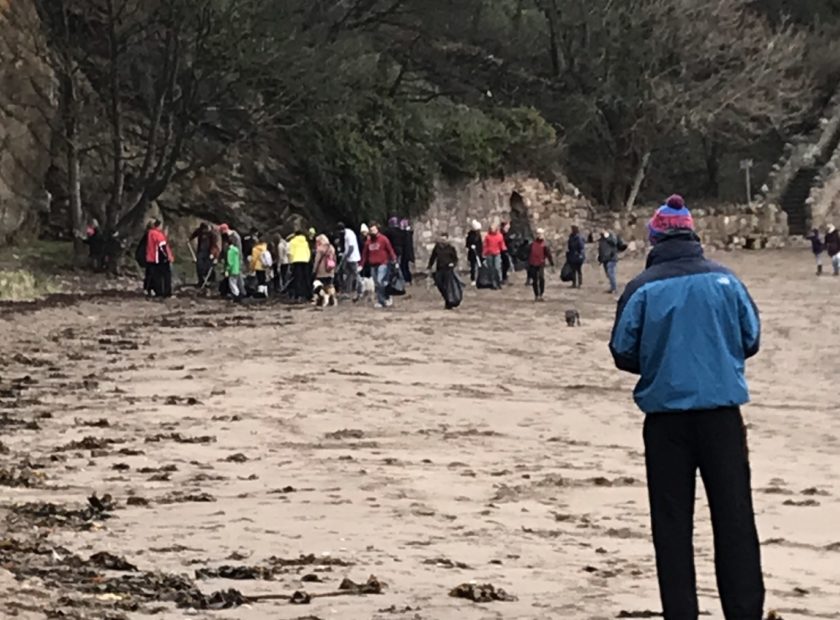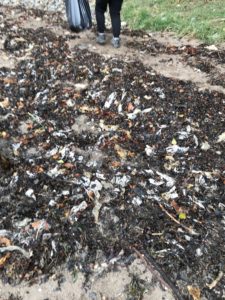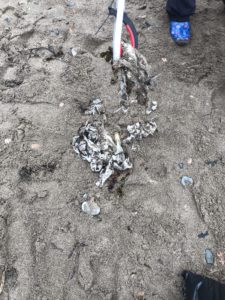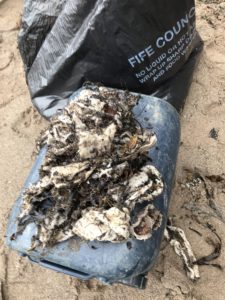Kirkcaldy Beach Clean and the Problem with Wet Wipes

Recently Revolution Barbershop on Kirkcaldy High Street, arranged a super successful beach clean starting from Dysart and Kinghorn and working towards the prom. I joined the Dysart side and was so pleased to see such a high turn out. There was around 75 volunteers in total and a huge amount of rubbish was collected. The event was sponsored by local businesses Koku Shi who provided some much needed food after and Print it, Stitch It who provided custom t-shirts.



The rubbish collected amounted to approximately 120 bags. 3 Shopping trolleys were found, car tyres, petroleum cans and lobster traps but the main problem highlighted was the sheer amount of wet wipes washed up along the shore line. Huge clumps of them were found tangled up in seaweed likely coming from people flushing them down the toilet.



So what’s the deal with wet wipes – some are ok to flush right?
Unfortunately no, not really. The manufacturers of “flushable” wipes put them through testing which simulates an environment much more vigorous than our sewer system and seas will so they like to advertise them as being biodegradable but in fact, they will never break up in the environment they are left in or if they eventually do, you’ll probably have outlived it.
Wet wipes are thought to be the cause of around 90% of sewer blockages and the biggest contribution to “fatbergs”. For those of you who don’t know, a fatberg is a mass found in the sewer system made from a mixture of fats, wipes and anything else that shouldn’t be in the drains in the first place. They cause major problems for the water systems. Wet wipes are also starting to cause false river banks as they wash up the embankments of rivers and create essentially a man made bed at the side of the river. A massive problem for marine life.
Wipes that are advertised as “biodegradable” and “flushable” tend to state that they are based from cellulose which is plant based and should break down. Unfortunately most of the wipes also contain some kind of polymer of polyester which does not break down quickly. You can in fact expect your wet wipe to float around the sea or catch some rays on the beach for around 100 years.
Are there some that do degrade? I’m sure there are wipes which someone has come up with that in fact will degrade over possibly a matter of months as opposed to years…However, the degradation process creates a wealth of microplastics as it breaks down. This is then ingested my our marine life. Next time you’re eating a fish supper you might want to say hello to that wipe again. Recent studies have shown our microplastics are now being found in the fish which enters our food chain and nobody even knows the health problems this will cause for us yet. Lets try and avoid it first!
Alternatives – there are plenty alternatives for wipes out there. Cleaning wipes are completely unnecessary now when you can buy washable clothes and cleaning sprays (or make your own!). See my previous posts on plastic free July to find out some more useful alternatives.
So next time you are about to flush, please just put it in landfill and once that pack is finished try something different! You’ll probably save some pennies in the long run too. For more information on alternatives to wet wipes see here.
References:
Big thanks to Revolution Barbershop for setting the trend and helping motivate the community to keep our beaches clean.
|